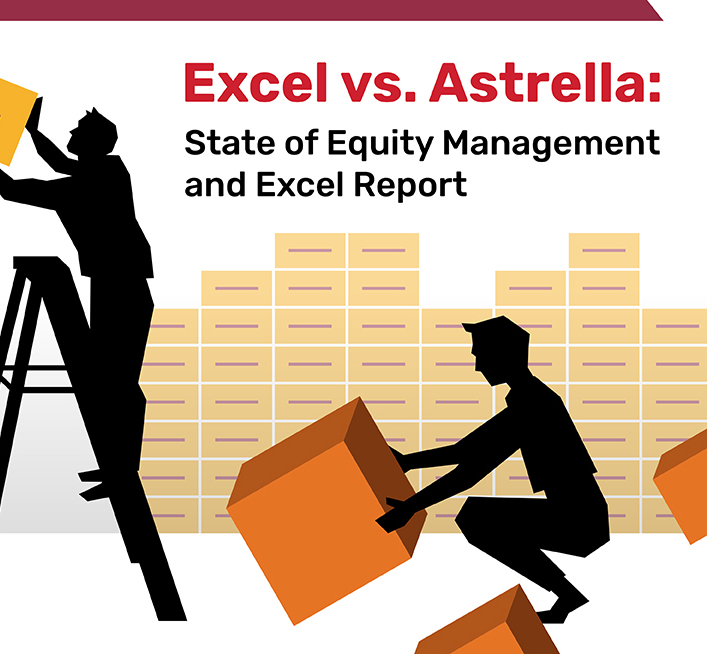When it comes to investing, there are a variety of options available for those looking to make their money work for them. One of the more popular methods is utilizing stock options or stock warrants, but what’s the difference between the two? In this article, we’ll explore the ins and outs of each option and examine the various benefits and drawbacks. We’ll also compare the two so that you can make an informed decision regarding your investments.
What Are Stock Options?
Stock options are a form of equity-based compensation that gives employees the right to purchase company stock at a predetermined price, known as the strike or exercise price. But, when an employee is granted stock options, they have the opportunity to buy shares of their employer’s stock at a set price during a specific period.
The primary benefit of stock options is that they allow employees to purchase shares at a discounted rate. If the company’s share price increases significantly over time, employees can realize substantial profits on their stock options. Additionally, employees can vest their options over time – meaning they can wait until they feel comfortable exercising their rights to buy the stock before doing so.
On the other hand, there are some drawbacks associated with stock options. Most notably, if an employee does not exercise their option before expiration, it becomes worthless and no longer has any value. Additionally, tax implications are associated with taking advantage of stock options, which should be considered before deciding whether to pursue them as an investment vehicle.
When considering whether or not to invest in stock options, it’s essential to weigh up all available information carefully and assess any potential risks in pursuing this strategy. It’s also important to consider how long you plan on holding onto your investment and your goals for investing in this manner. By taking into account all these factors you can make better informed decisions about which option is best suited for you and your financial goals.
What Are Stock Warrants?
Stock warrants can be a lucrative investment opportunity for some investors, especially those with a long-term outlook and the ability to do their research. Warrants provide investors with leverage and tax benefits that can help them generate higher returns on their investments. However, it is essential for potential investors to thoroughly research all available information before deciding to invest in stock warrants.
Benefits Of Stock Options
Stock options have long been famous for businesses to incentivize and reward employees. Not only do they provide employees with the opportunity to benefit from any increase in the company’s stock price, but they can also be tailored to suit the needs of any business. For example, companies can set vesting periods and strike prices that fit their situation.
Stock options can also hedge against market volatility and help manage risk. By giving employees the ability to purchase shares at a predetermined price, employers can mitigate potential losses should the value of their stock drop significantly in an uncertain market. Additionally, exercising stock options is taxed at capital gains rates, often lower than income tax rates, thus offering financial benefits for those who choose to exercise their options.
For individuals considering whether or not to pursue stock options as an investment vehicle, it is essential to research available information before making any decisions. It is also important to be aware of potential risks associated with investing in stocks, such as liquidity risk and vesting rules that could result in losing some or all of one’s investment should certain conditions not be met.
Overall, understanding how stock options work and considering all factors, including tax implications, can help ensure that investors make informed decisions when investing in stocks or exercising their option rights.
Benefits Of Stock Warrants
Stock warrants are an attractive option for investors and employers alike. Warrants give holders the right to purchase company shares at a predetermined price while preserving liquidity by allowing them to be transferred from one investor to another. For businesses, stock warrants offer the potential to conserve cash while providing rewards or incentives. Furthermore, they can help minimize dilution of ownership when financing projects or raising capital. It is essential to consider all available information and potential risks carefully before investing in warrants; however, when used correctly, they can provide great returns and incentives for investors and companies involved.
Comparing Stock Options and Warrants
Stock options and warrants are equity-based compensation tools that allow employees to purchase company stock at a predetermined price. Despite the similarities, there are various critical distinctions between the two.
Vesting periods and expiration dates are two crucial differentiating factors. Typically, stock options have set vesting periods after which they can be exercised; however, warrants often don’t come with expiration dates, meaning they provide more flexibility for employers regarding compensation plans. In addition, exercising stock options requires a strike price payment, whereas warranty involves trading existing shares for new ones without any upfront cost.
Tax implications must also be considered when weighing these two forms of equity-based compensation, as stock options may face capital gains tax upon exercise if conditions are met. In contrast, warrants can be treated as ordinary income due to no associated cost. High earners may prefer the option of stock options, whereas those on lower incomes should factor in higher taxation rates on their gains from exercising them before deciding.
Finally, liquidity is another crucial factor when considering which option suits your needs or business. Stock Options tend to offer greater liquidity due to shorter expiration periods and dividend entitlements during ownership; however, this could become illiquid if held too long or if market conditions change drastically during the vesting period, causing prices to fall below the strike price. Warrants tend to provide less liquidity due to no upfront costs, meaning holders will need access to additional funds to take advantage of any potential upside gains from exercising them.
In conclusion, understanding how each works and considering factors such as taxation implications, vesting periods, costs & liquidity will help you make an informed decision when considering either option.
Conclusion
In conclusion, when it comes to stock options and stock warrants, it is essential to research and weigh all the possible advantages and disadvantages before making a final decision. Both options have pros and cons, so consider each option carefully to determine which is best for you. It’s also important to be aware of any potential risks associated with either option in case they arise over time. Ultimately, understanding both stock options and warrants is the key to making an educated decision that will benefit you in the future.
Discover how our stock option management software can streamline your equity administration process and easily ensure compliance. Explore our innovative solution and see how it can transform your business today!

Tom Kirby
Tom Kirby serves as the Head of Global Sales at Astrella. With more than 20 years of experience in sales and business development, he is dedicated to fostering strong client relationships and assisting both private and public companies in understanding and effectively communicating their value.
































































































































